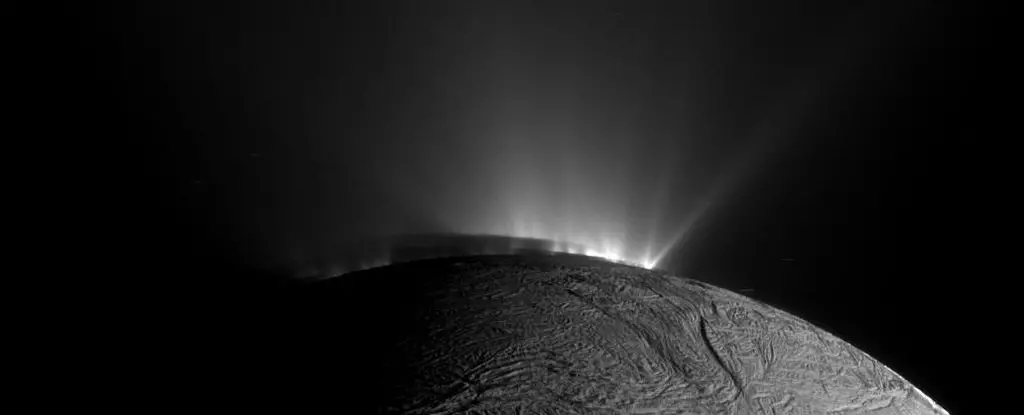The Cronian moon Enceladus may seem unremarkable at first glance, overshadowed by Saturn’s magnificent rings and giant hexagon. However, looks can be deceiving, and recent analysis reveals that Enceladus is harboring far more organic molecules than previously believed. The Saturn Cassini probe’s data indicates that this icy moon releases substances like methanol, ethane, and molecular oxygen through geysers originating from its subsurface liquid water. This finding further supports the idea that Enceladus might possess a habitable environment conducive to some form of biochemistry or even microbial life. Consequently, scientists are increasingly urging for a dedicated mission to be sent to Enceladus, hoping to uncover extraterrestrial life once and for all.
The majority of our knowledge about Enceladus is derived from the Cassini mission, which meticulously explored Saturn and its satellites from 2004 to 2017. Prior to this mission, our understanding of this small frozen moon was fairly limited. However, the Cassini probe’s detection and encounter with plumes of mist erupting from cracks in its icy surface unveiled the presence of a liquid ocean beneath. Further analysis using the Ion and Neutral Mass Spectrometer (INMS) revealed the existence of organic molecules within these plumes, such as water, carbon dioxide, methane, ammonia, and molecular hydrogen. Nevertheless, the low mass resolution of the INMS made it challenging to identify less abundant species accurately due to the wide range of potential combinations. Consequently, the complete composition of the plumes remained uncertain.
A Fresh Analysis
With the desire to gain a more comprehensive understanding of Enceladus, a team led by astrobiologist Jonah Peter from Harvard University and the NASA Jet Propulsion Laboratory decided to reexamine the INMS data. Utilizing statistical modeling, the researchers compared the data with a vast library of known mass spectra, enabling them to identify the substances responsible for the observed patterns. Their findings not only confirmed previous discoveries but also unveiled a broader range of organic molecules, including hydrogen cyanide, acetylene, and propylene. These compounds are implicated in prebiotic chemistry, which relates to the formation of life.
Evidence strongly suggests that Enceladus possesses an active hydrothermal environment, likely due to its orbit around Saturn, which causes the moon to stretch and compress, generating internal heat. This thermal energy can escape through vents on the ocean floor, creating a hospitable environment for life, even in such a distant location from the Sun. Analogous processes occur in the deep oceans of Earth, reinforcing this possibility. However, it is crucial to acknowledge that the presence of detected molecules does not guarantee the existence of life on Enceladus. Although it is plausible that these substances are simply coincidental, the implications are nevertheless fascinating. Laboratory experiments on Earth can help narrow down the presence of life on Enceladus, but the only way to know for certain is to embark on further exploration.
While proposals for missions to Enceladus are already underway, no concrete plans have been finalized at this point. Nonetheless, each piece of evidence brings us closer to the dream of visiting this alien moon and searching for signs of extraterrestrial bacteria. The researchers conclude that their results point to the existence of a chemically diverse environment capable of supporting complex organic synthesis and potentially even the origin of life. So, what are we waiting for?


Leave a Reply